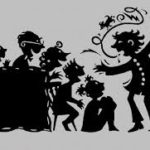
we all have tales
“Take care and watch yourselves closely so as neither to forget the things that your eyes have seen nor to let them slip from your mind all the days of your life, make them known to your children and your children’s children.” Moses
The Wishing Bone Cycle, the Swampy Cree American Indian stories, translated by Howard A. Norman, explains how telling became an act of ‘going forward/looking backward. Unlike traditional Indigenous stories of how people got their names, stories grew larger and more creative with each telling.
I don’t want to exaggerate my family stories because I am the last living teller. What I perceived and heard from my kin when I was a child naturally transformed events as my growing perception developed. I heard stories, unchanged and matter–of-fact in style, often sounding bizarrely Gothic.
At first, I felt ashamed and frightened about our family tragedies. Survivors like me often experience sorrow about how our loved ones suffered and died. My primary story-tellers are gone, so I take on the role of the Irish storyteller, “Shanachie,” as long as I breathe. I’m the last member of my tree branch. Funny thing is, my kids aren’t particularly interested. Oh well, I write anyway.
As a child born in Japan and brought to the USA’s West Coast, I’m a West/Northwestern woman. Personal mythology is a comfort, like a woolen shawl warms a cold child. My parents were raised on North America in two different countries, so I also bring their sensibilities in my perception, which may or may not even be true.
These days the Internet provides ordinary people like me extraordinary opportunities to write, and those of us who do write make connections between our past and our present experiences on Planet Earth.
I learn and understand what happened. If a writer follow Moses’ advice and thoughts go into writing for posterity, it may or may not continue past my generation, but it really doesn’t matter. The magic is writing and hopefully, Dear Reader, you find new considerations.
I recently learned the Mezo-American cultures of Mayan, Toltec and Olmec peoples did have writing systems possibly written on paper as in Europe. When Cortez invaded Mexico, his footmen collected and burned almost every single written thing they found, so they destroyed ancient people’s memory. Western children like me were not taught that. We were taught that South America didn’t even have writing, WHEN MULTIPLE SOCIETIES DID WRITE on a type of paper, and of course. stone. They didn’t write phonetically, but they had an abstract code of letters and symbols beyond pictographs, which American children did not learn about in school.
So I join legions who urgently tell about their lives and there is nothing wrong with that. The fantasy remains that writing means something to the larger Human race, which has yet to be determined. The Moses quotation was translated from a dozen different languages, so we don’t really know what exactly he said or if he wrote. It’s a miracle we even remember someone as important as Moses.
Quintessential Pru policy statement! Also well written… keep on telling the tales of the ancients with your modern insight. It helps unknown (and untold) people of your tribe, the Peoples of Planet Earth.
An aside: since Moses’ musings were translated from a dozen different languages, even with the usual corruption of a gossip chain his elemental truth is woven through the cultures represented by those languages. Awesome!